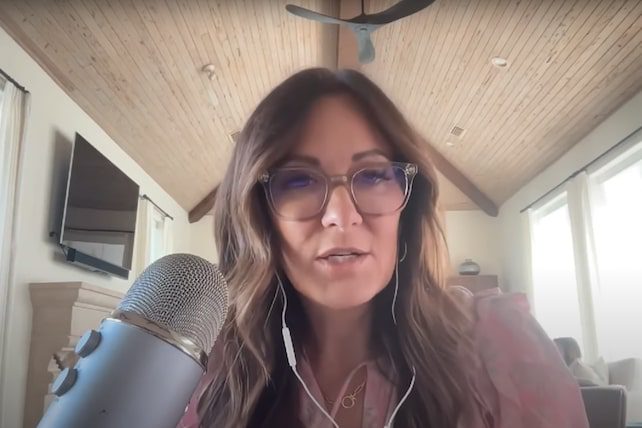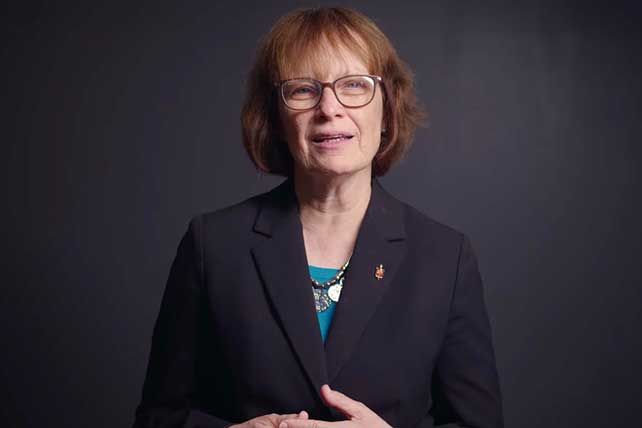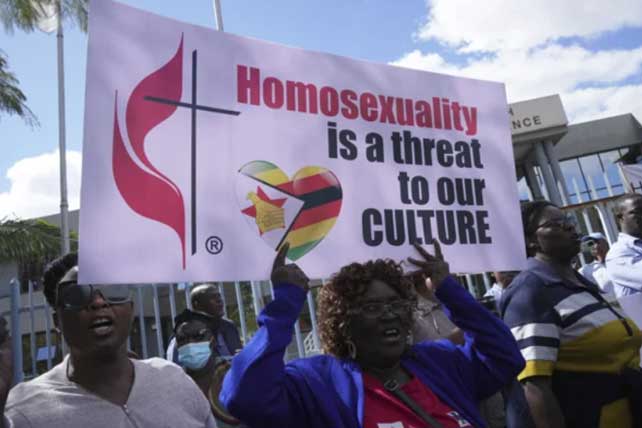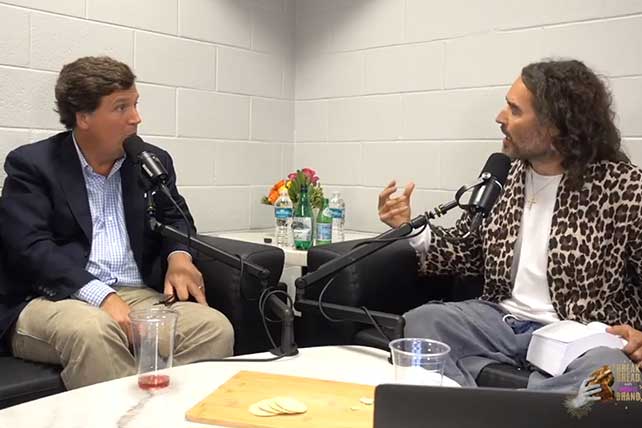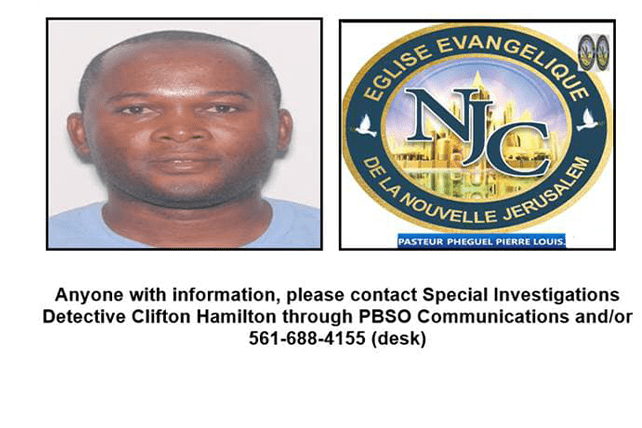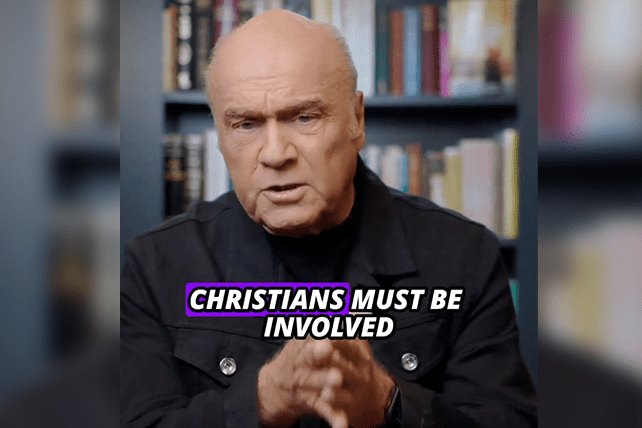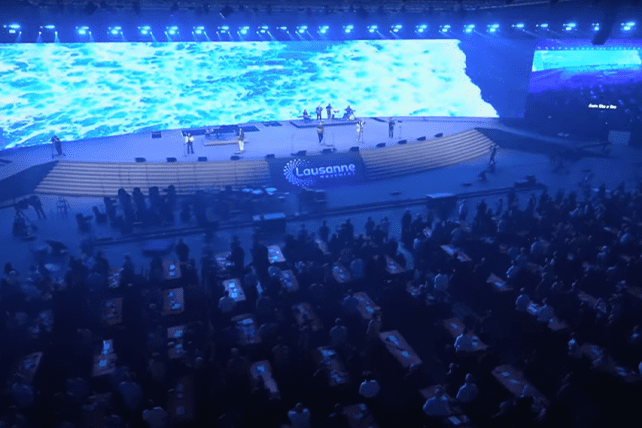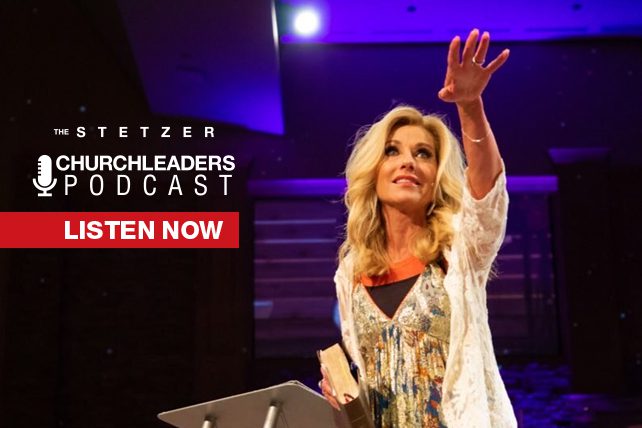Beth Moore on The Stetzer ChurchLeaders Podcast.mp3: this mp3 audio file was automatically transcribed by Sonix with the best speech-to-text algorithms. This transcript may contain errors.
Voice Over:
Welcome to the Stetzer Church Leaders Podcast, conversations with today’s top ministry leaders to help you lead better every day. And now, here are your hosts, Ed Stetzer and Daniel Yang.
Daniel Yang:
Welcome to the Stetzer Church Leaders Podcast, where we’re helping Christian leaders navigate and lead through the cultural issues of our day. My name is Daniel Yang, national director of Churches of Welcome at World Relief. And today we’re talking with Beth Moore. Beth is an author, speaker, and Bible teacher, and the founder and visionary of Living Proof Ministries. She’s written numerous best selling books and Bible studies, including her memoir, All My Knotted Up Life and the Surpassing Value of Knowing Christ a Study of Philippians, co-authored with her daughter, Melissa. She’s also a part of a new resource for pastors and church leaders from RightNow media called Pastors Plus, out later this year. More at right Now Pastors plus.org. Now let’s go to Ed Stetzer, editor in chief of Outreach Magazine and the dean of the Talbot School of Theology.
Ed Stetzer:
Well, I’m super excited to have this conversation Because and partly because, you know, I think, Beth, you are one of the I mean, compelling would be certainly a descriptor that would fit well to your kind of Bible teaching. So I’m the general editor of that series over at right now pastors plus. Um, and so I said, let’s ask Beth to teach on compelling Bible teaching. So we’re going to talk. I mean, our whole conversation today is going to be built around how how we might teach better how and this is going to be applicable to lots of different people, um, pastors, church leaders, church staff, Bible teachers, and more. But some of my questions will be kind of in and around the idea of what you covered in the videos that you’ve already produced and will release later this year. If you’re listening, depends on where you’re listening, but it’ll kind of come out later in 2024 or early 2025. Okay, so when you started doing the teaching, you really focused in the beginning of part of why you think that teaching should be compelling because you believe the Scripture itself is compelling. I think that’s a good place to start because I’ve heard some. I mean, it’s kind of a sin to make the Bible boring. It’s it’s kind of a sin to make the Bible seem irrelevant. But the nature of the Scripture compels you to communicate it in compelling ways. So start there by telling us how it begins with that.
Beth Moore:
Oh, listen, I want to tell you guys, I am so pleased to have this conversation with you. And it is not very often that I have the invitation to teach teachers about teaching, and I come at it with what I have to give. I don’t have everything to give. I don’t have all the experience that others may have. I don’t have some of the, um, education that some of the others may have, but what I have I gladly give. And where it all begins for me is with the text itself, because that’s where I fell in love with teaching, is that it so thrilled me, the brilliance and beauty of the text itself, and in this case, it happened to have been that in the earliest stage, it was when I was in my mid-twenties and I was in Exodus studying the Old Testament Tabernacle. And for the life of me I could not have kept it to myself. It was the most mind blowing concept. And seeing it in the Old Testament, and then seeing it connect with what was in the New Testament, and seeing then the words that connected about all the dwelling places, and it just completely captivated my imagination. So to me, I certainly won’t blame it on us entirely by any stretch. And saying that that if people think it’s boring, it’s because they’ve had boring teachers and preachers and communicators. I’m not willing to say that entirely, but I am saying if we don’t find it compelling, why on earth would anyone in our audience love that?
Ed Stetzer:
When I was at the interim pastor at Moody Church. I got into this silly pattern for, I don’t know, it was like a few months and every time I get up, I think I was preaching through Matthew at the time I said, this is my favorite passage. So. But but I feel that way. Like like I love, I love opening up the Bible and whatever I’m talking about. That’s my favorite thing. So yes. So the love for the text is there. But one of the things you talk about in this is in session two. You talk some about that. It’s the love for the text, but then it goes into what you called out of the overflow. I mean, people use that term in different places and spaces. So so starting with the text and loving that obviously is key. But then remind us how it kind of comes to the overflow, how that matters.
Beth Moore:
This is going to be the point that we lose many people in what really propels that communication process between teacher and listener, because this is where I’m going to say over and over again, this is what’s going to make or break it, and that’s spending the time that it takes to prepare the teacher ourselves, that we’re not just going to the scriptures to prepare a lesson. And let me tell you, that will be that is the biggest temptation I think of all communicators in, in Christianity is that we’re forever getting something ready, forever getting in. A text will decide, no, I need to have prayer time and find ourselves, you know, ten minutes in. We have now bridged over where we’re jotting down notes for that coming message. And so we we lose the very thing that would propel us most for it to come out of that overflow, we lose it in going. You know what? I just didn’t have time. I just didn’t have time when listen, ideally, neither of these two, whether it’s the preparation of the teacher or the preparation of the message, neither of these two would have to give way to to the other. Both are so important, but I would almost be willing to say better a prepared teacher than such a well prepared lesson that the teacher is not herself or himself prepared to give.
Beth Moore:
It’s not something you can tell. You can tell. All of us have been in congregations or classes or in events where we’ve thought, I don’t know. I’m unconvinced that that this is something that is just in this teacher’s bones. But but when it is, boy, you know it. And so there’s there’s got to be that thing with God ourselves. We got to have our own thing going. And I also want to say that to me, I bet both of you gentlemen would agree with this. Not all preparation takes place with an open Bible and a pen and paper sometimes, especially if I’m kind of locked up and not getting anywhere on preparation, sometimes even a walk and just letting God decide, okay, I’m going to stop fretting over it and just let the Holy Spirit bring it to light and just let let myself relax in him and trust him. And so often that’s where it will start coming together for me. So it is so much about our relationship with Christ and and prioritizing our own thing with him and then the teaching coming out of that, because it makes all the difference in the world.
Daniel Yang:
I believe you 100%, Beth, and but I think people would be super fascinated to, like, know the mechanics of what what you do. Uh, because I know it’s prayer. I know it’s steeping time with the Lord, but when it gets down to, like, pen to paper, like, what’s your process for how you how you begin? And especially especially in the case where somebody, let’s say, assigns you a topic. And then the second case when you’re developing your own series. Okay.
Beth Moore:
What’s your I love that you asked this. So don’t let me overtalk here because I can overshare and then we’ll never get to another question. But those are two very different things because, for instance, when it comes to most of my events, if they’re like a living proof live event or something we’re putting on through living proof as opposed to being asked to come and be part of a group of speakers, we’re often then I’ll be given a topic. If it’s if it’s my own, then I’m usually I’m going to be praying that through. Lord, what are you wanting to say? What are you wanting to do? And I’m going to be preparing from that point of view where I’m starting totally from scratch. If it’s something that I’ve been given, a topic I’ve been given, then of course I’m going straight for that particular subject matter, so you are going at it differently. It does take a different kind of of preparation. But if but for me and I shared this in the series that I did for with you guys editor, but I don’t I’m not positive that people will take me very seriously on this. I’m I am not going to stretch this in the least. I’m telling you, when it comes to the things that I speak on that are not already given to me as a topic. I am telling you, I would guess, Daniel, that somewhere around 80% or so of the topics that I end up developing have come directly out of my own time with God, my own prayer time, my own devotional time.
Beth Moore:
So to skip that, when that’s what caused that particular scripture to jump off that page at me and me think, mm, That that I find very intriguing to skip, that I just skipped a very big part of what ends up prompting me toward preparation. But the first thing is going to be that I’m if it’s topical, I’m going to be looking now from place to place for that particular. If it’s on worship, say, for instance, if it is on gratitude, if it is on repentance of sin, whatever it may be, then I’m going very broad. I’m starting with a word study, getting into the scripture and getting into key texts. But my favorite thing to do, of course, is go to a particular passage of Scripture where the first thing I’m doing is just nothing but reading over and over, reading over and over, reading just the text itself. One of the things I love to do is if I’m reading a scripture. This is why I like memory work, because it it gives me the privilege to do this very thing. If there is a particular scripture that I am am reading then or reading aloud, then I try emphasizing a different word or a different phrase every time I say well. For instance, while we were yet sinners, while we were yet sinners, while we were yet sinners, Christ died for us.
Beth Moore:
Christ died for us. Christ died for us. You understand what I’m saying? And so that’s that’s hitting me with that different emphasis, I love that. Then I am going to go almost invariably at that point, if I’ve gone already to a word study of some type of some kind for a topic or a theme, that’s when I’m probably going to start looking up words, and then that’s when I’m going to start looking at a couple of commentaries and I say a couple listen, that could be as many as seven, eight, nine commentaries, because those have been my professors. I’m sure I shared this, but because I was not academically trained, I didn’t have the I would like to have been, didn’t have the opportunity, did not work for my family. The proximity of of the seminary didn’t work for my family, but I learned how to use secondary sources, which for me has been a gift beyond measure. So where a lot of people might go, you know, I don’t I don’t care about using them. It was necessary for me. It was what helped me keep from going, you know, reading a text. And because I didn’t have any background whatsoever, just going completely out of bounds with it and doing it honestly and and genuinely, you know, all of us who teach for long, we’ve all missed taught. That doesn’t make us false teachers to teach something in error. We’re not going to escape that. So one way I’ve tried to check myself through the years is just go, go see what those with the gift of knowledge, what they can say to us.
Beth Moore:
And then I’m going to be looking through that. I’m going to see what what really resonates, what connects. And to me, the hardest part. Daniel, this is forever going to be it. Because I if I loved the process of study and research, which I do, that that I’m probably a student before I am a teacher. And that’s one reason I love teaching so much, is I love the whole process, but my tendency is that I want my listeners or those who are at the event to learn everything that I did. Everything. Well, they can’t that I have been studying that for days and hours that week, and I’m going to have maybe even in my events where I’m teaching throughout the whole thing, I’m still only teaching three times. You can’t you can’t teach all that. My biggest crisis is when it goes from all that research, which, okay, say it may easily for an event, may have turned into 2526 pages of research. How now does that go into a cohesive outline of comprehensive points that are memorable? And that to me, that’s the I am praying through that as much as anything. In preparation, I’m praying through how now, Lord, do I get all of this? What do they need? I said to the Lord this morning, just this morning, in preparation for something I was working on today, I said to him, what do you want them to know from this? And you know, he doesn’t speak just out loud to me when I ask that.
Beth Moore:
But through the next little while it will become to me clearer through the work of the Holy Spirit. Okay, this is where he seems to be leading because I’m like, I love all of it. I don’t know what what is it, Lord? You want to say? You know who’s going to be sitting there, you know who’s going to be listening. So those are things that are really important to me. Time again, to let it sit, to let it sit on me. I have to have it. I have to have time to let those scriptures. Then, as some of my friends will say, marinate so that I can think, you know, so that I can just sort of loosen up the stress and just let the Holy Spirit talk. I’m a big one. I think both of you are as well. On, um, I believe strongly that the teaching of the Holy Spirit, that what I’m looking for is him doing that through me. And so if that’s the case, then what I’m asking him to do continually, I’m saying, Holy Spirit, help me to remember that this is about receiving and not achieving, that I’m not trying to achieve something here. You’re I’m trying to sit here in the scriptures and receive from you.
Ed Stetzer:
It’s so good. I think that the place of the cutting room floor comes to mind here, because there’s a I mean, when I’m, when I’m working through and this, this requires though, you know, you can’t have this done if you’re if you’re preaching on Sunday, you can’t on Saturday be finishing your message. Because for me, I got to finish my message, you know, ten days ahead so I can come back to it and shrink it, shrink it, shrink it. My sermons are always too long. Um. And I got to shrink it, shrink it, shrink it. So the cutting room floor really becomes essential. But it does sort of reminds me of one of the things that you said in the in the compelling teaching thing, uh, with the, with the, with the pastors. Plus thing is you talked about how I’m going to quote you, the life of the teacher is everlasting homework, quote unquote. Um, and you’re you’re kind of like preparing, but you’re still I mean, in my case, I think in your case, you’re preparing up till you do it, but the bulk of it has to be done beforehand. And then things can kind of because you’re always looking around, looking at life, listening to the Holy Spirit, reading the Word of God. So how how are you constantly studying and then constantly tweaking as you head up to the teaching?
Beth Moore:
I’m so glad that you asked that, because I want someone to hear me say after you said you have to have your your message ready ten days in advance, that not once that I recall in my entire life have I ever had a message done ten days in advance.
Ed Stetzer:
So. Well, don’t. Do you have the when do you have the bulk of it done? And then you start like narrowing it down. The sets are at Church Leaders podcast is part of the Church Leaders Podcast Network, which is dedicated to resourcing church leaders in order to help them face the complexities of ministry. Today, the Church Leaders Podcast Network supports pastors and ministry leaders by challenging assumptions, by providing insights and offering practical advice and solutions and steps that will help church leaders navigate the variety of cultures and contexts that we’re serving in. Learn more at Church leaders.com/podcast network.
Beth Moore:
Even that, and I would give anything to say that I share that with you. Even that I’ve never done the only time I have ever done that. And this just, I guess I just slide in on the seat of my pants to everything. But, um, the only time I’ve ever done that is with, say, for instance, one of the LifeWay Bible Studies, when I had to turn it all in in advance. But here’s how I normally do it. I do go into it with it all. Say, for instance, I’m flying into a city. I fly in on a Thursday to speak on a Friday that I got to do once my kids were raised and had the margin to do it so I could take the extra day where I didn’t have to get in all the, um, airport drama and go in a day before. By that time, I have everything. My outline, my speaking outline is is typed up and almost always printed out. There is space between all of those points, however, that I go back in and even over the last 24 hours, it may even be that morning. I’m handwriting in between because it may be at that point that to me, the best, most timely illustration comes to me something that may even have to do with that particular flying into that particular city. Something I saw in that city that was very, very, um, applicable to that lesson.
Beth Moore:
So I, I’m doing both of those things. I’ve got the skeletal message. So more than an outline, I’ve got normally say, for instance, at a living proof live or some kind of event where I’m doing all the teaching, say, I’m going to make a series of seven points, then I’m going to have I’m already going to know those, I’m going to have those out. But and I’m going to have the scriptures with them. But then I’m going to as it gets closer and closer, be filling those in and the things that I want to add, or sometimes the things I want to take away, something else that I do is if I figure out, oh no, I’m going to run out of time. And I bet I don’t get to tell that I drop that to the bottom of my notes, and I’ll put it to just such simple stuff here, you guys, you could find people that are so much, so much better at, at, uh, at telling how to, to do this in such sophisticated ways than I am. But it’s, it’s just extras. I’ll just say extras at the end. And so that I have those there, if I do get a moment and I realize, oh, no, my time is going better than I thought, boom, I can share that. It’s right there in my in my notes.
Daniel Yang:
As you’re describing that. It makes me think about if you guys have seen Tim Keller’s manuscript that’s floating around online, and it looks like it’s its own language because he’s got like a his own shorthand, and he refers to like an appendix that he’ll create. And I wonder what’s happening in Beth’s mind when she’s when you’re actually preaching the sermon, Beth and or the or the Bible study or whatever it is that you’re doing. Are you going verbatim? Are you when do you become more spontaneous and extemporaneous? And then do you know exactly how you’re going to land? Like, how do you how do you know you’re going to conclude? Is that something you sense or do you design all that?
Beth Moore:
I do, I do design it. I do a mix of what you’re saying. Daniel, I had such a fun conversation with Jackie Hill Perry a couple of years ago about this very thing, because her preference has been manuscript, which in a lot of the world I’m in now, it used to be that I didn’t see it as often as I do now, but even at my own church, much of a sermon is coming from a manuscript form. And so I’ve come to appreciate it so, so much and even do it when I’m in the environment where it is the way of doing it and it is the requested way. And so that’s that’s been something fun. But I do I do a mix. I do have my notes down every word. Absolutely not. And it’s Daniel. This is also why you don’t know a teacher that gets in more trouble than me, because I don’t have everything written down and I am going to chase a rabbit or something funny is going to occur to me, or I’m going to see something funny in the audience that for whatever reason, I cannot resist bringing up. Then I’m going to chase that thing down. And so I but I like that that to me, you know, I’m kind of a free spirit, so if it’s too pinned down, I don’t feel the same way.
Beth Moore:
So I do a mix of that. I’ve got I’ve got my points. But sometimes, like I’ll say in the beginning, almost always I’ll say in the beginning, what I have for you is seven points or six or whatever. If we get to all of them, however we may or may not, I’ll say that. So I’ll give myself an out right there and then talk about landing. Daniel. Oh please. Please, anyone listening or watching learn from my mistake. So often in preparing we’ve done the front side, but we do not recognize how important that landing is. That that when we come to wrap it up, we know what we wanted to say and how we bring it all together. I had an editor, um, both you and I, editor worked with you worked for LifeWay. I think, actually for them. I worked with them for such a long time. And I had an editor there that told me, Beth, after every lesson, whether it’s written or whether it is spoken after every message, your listener or reader should be able to walk out of that place and someone say, what was that about? And they should be able to answer that question in one good sentence. And it’s not that there wasn’t a lot of expounding, but that they are that clear.
Beth Moore:
And I will tell my class over and over again, Daniel, I’ll I’ll tell them what it is. I’ll tell it. This is what we’re doing here. This is what we’re after. If I’m speaking three times at an event, I will recap every single time where we’ve been. What points have we made? I’ll get them to repeat it back to me, because I want to remind our listeners and our viewers that it’s our job as teachers. I don’t I don’t know if you can say the same thing about preachers, but teachers, our job is learning that they learn it, Which means making it memorable enough for it to stick. That’s our job. And I’ve said so many times, if I had to do backwards cartwheels, when sometimes I look at myself teaching a lesson and I think you are an idiot because, I mean, I’m just like, whatever. And I mean whatever visual aid, whatever, but I’ll still come back to every single time. You know what? If it makes it stick, if they remember it when they leave, if that for some reason made that thing click. I am willing to be the biggest fool in all of Texas. And we’ve got some.
Ed Stetzer:
And I think that, um, you know, some people talk about the big idea, you know, that that, that, that one sentence that helps it to stick. The phrase that stays. I’ve heard somebody I forget who it was. Somebody in the UK said the phrase that stays, you know, whatever it may be. I do think that does make sense. I think it’s a little tricky because, um, you know, we want to bring a lot of content and I think you can bring a good amount of content, but you still need to say that person who walks away, what was that about? And then the rest of the stuff might sit in the back of their brain. But the front of the brain is this is what that was about. So just out of interest, some quick rapid fire questions. Um, like how many pages are your notes when you do a 30 minute message? What is what does that typically look like for you? We won’t ask the font because 4 to.
Beth Moore:
5 pages.
Ed Stetzer:
4 to 5 okay. That’s interesting for me. I’m at like 12 to 13 pages. But I have probably I write I write more down in it. You do more I would say too. I also also.
Beth Moore:
You wrote it ten days in advance. Where.
Ed Stetzer:
That’s fair. Well, that’s not true. I would say I probably when I said that the bulk of what I want to say is done ahead of time, but but by the time, I mean, I’m still tweaking up to the day of. But I don’t have the mental space to, like, figure it all out on Friday and then communicate it Sunday. I need to be walking around saying, hey, this would be better. Look, there’s a bird. How does that help me to think about this. So, so that’s sort of like the it’s almost like an ongoing opportunity. If I have it done, I can adjust it. If I don’t have it done, then I’m still trying to create it. And I think that’s different for me.
Beth Moore:
That’s right, that’s right. So we’ve got to be prepared.
Ed Stetzer:
Okay. So let’s talk then about because we’re talking again, even the whole theme of the, the, the your, your particular study in the right now Pastors Plus is compelling teaching. So one of the things you talked about is you talked about beginning your message with your audience. Right. And so what ways do you like to do that? Because that that attention grabbing. What are some options that you would suggest people use to bring the the the congregation or the audience or the listener in?
Beth Moore:
I’m looking continually at the audience as I go up and do my greeting. Now, this is one place. This comes by experience, I said. I think it was in the very last session that I did for with you guys for right now media, I talk about this. There’s just really no replacing experience that you just practice teaching. I mean, that you practice and and by that I mean you do it and you do it and you do it and you do it and you do it. So perhaps that’s where I got to where I could develop this. But I am looking from the time I hit that stage and, and start looking in the eyes of my participants. I am looking for ways to connect. And I’m looking. It may be something they’ve got in their lap. It may be a group that I see sitting together, whatever it is, but I am looking for how can I get on their page, not just get them on mine? How can I get on theirs? What? What is what do they have in common? And I’m the outsider coming in, so I’m looking for that kind of thing I usually I usually start from a more personal kind of a an approach as opposed to, say, a sentence grabber. Now, once I pray, I’ll do welcome. I’m going to pray then and stand up. It may be that that’s when I do a sentence that is already prepared. I know that this is exactly how I’m starting it, but that normally is not the way I’m doing it. And that’s that’s personality. I’m a real people person, so I’m going to look for ways that I can just communicate personally with them a little bit as we get started and then go with it, and mine will typically build up like this I, I am wanting, I am wanting so badly for them to make connections and to dig out that revelation instead of just having it.
Beth Moore:
These points just boom, boom, boom. I’m I, I use this example where, where Deuteronomy eight says of the promised Land, God said through Moses, and you will dig copper out of the hills. I don’t want to lay it on the hill for those listeners. I want them to come with me, get down on their knees with me, and let’s dig it out. You know, I’ll just have people say to me over and over. The flipping back and forth drives me crazy. I get it, I’m not everybody’s teacher, but that’s what I love. So that’s what I try to engage my class in doing. And let’s say that because I know that we’re running out of time, I want to make sure that we’ve said this point for people that don’t necessarily go to watch the resource, none of us are is going to be everybody’s communicator. You’re not going to do it. You’re not going to do it. Do be as true to your gifting and the way that God has developed you. Be authentic in the way you approach it and the way that you. Yes, I mean grow in your gifting, but stay you in it. And that way you’re going to have to know some people are going to like you, some people are not going to, but you’re going to try as hard as you can to reach all of them.
Daniel Yang:
Beth, I want to press into that a little bit more. I mean, there’s definitely the discipline of doing something X amount of hours for a long time, and you become good at it and maybe you can draw from your life. But what what are the moments that really helped you grow as a teacher of the Bible? Was there a profound moments? I’m sure there there were things that were just a matter of discipline and repetition, but what were the things that really caused you to maybe change the way that you thought about teaching, the way that you did teaching? Were there moments like that?
Beth Moore:
Oh, Daniel, I can’t even begin to count them. One would be realizing after a lesson how it hit that I thought I was saying this, and somehow I communicated that it’s going to be that feedback being secure enough to receive that feedback, whether it’s through a letter, whether it was through something that was said to you or whatever, if I realized something came across that it was like, that could not have been further from what I meant. And that’s why I say that in in the series that our our least favorite teacher. A teacher’s least favorite teacher is, is criticism. And there’s also just good critique. People that love you like I would have people I had a chance to cut my teeth in a very, very safe environment. It was a young teacher. I started out teaching young. I was only 2027 when I started teaching adult women, and then my class grew and grew and grew. But I was in a church where I was safe enough that if a woman came up to me afterwards and said, I don’t, Beth, I think maybe I mispronounced something. Or maybe I don’t think Beth, I don’t think you meant to say so-and-so. Though I hate to say Daniel, how effective that is. If we’ve got the, you know, the courage to do it. But I want to tell you, I want to tell you this never, never underestimate the power of having to just get up again, because I, I have no idea. Even in the last year, I never outgrow this. It never gets to where I still don’t blow a message badly enough to think, why did you ever think you could do this? But the fact is, I’ve got the next time I’ve got to get up.
Beth Moore:
And that is part of it is I’m a big believer in Sunday school because I had to keep getting up the next Sunday. I don’t care how badly the last Sunday went. I’m going to have to get up the next Sunday and I’m going to have to do it again. And over time, you know, there’s you learn, there’s going to be some lessons you feel great about and lessons you don’t. But what we come back to over and over again is I say this to myself again and again. When I’m unhappy with a lesson or unhappy with an event, did I? As as much as I knew, how did I read the scriptures and communicate the actual scriptures? How often did I turn them in the Bible to verses? And how often did we read those out loud? How often were they on the screen? Because my one promise is that that God’s revelation will not return empty to him. He will do with it, even if it’s not that weekend, even if it’s somewhere, in retrospect, I have to know that. Or I’m just, like, dead in the water. I’m. I’m too, I say I make too many mistakes. So I got to know he’s going to do his part. And I think also they a class knows if we love and esteem them and we can mess up a good bit and them know that we are trying our hardest and didn’t realize our error until we could come back and say, oh, you know, I wish I’d done that differently. They they know that that we that we love them or they know if we don’t.
Ed Stetzer:
Right, right. I think it was interesting that when you put together the outline for the course, and I thought it was interesting that your you put a whole session. Session five is the compelling teachers least favorite Teacher, which is that area in and around criticism. And you said that it’s both inevitable and effective. Um, so how do you, you know, because now in a social media age, you know, everyone’s got a critique about everything. So how do you receive part, not receive others if it’s inevitable and effective? How do you make it effective? Acknowledging the inevitability but not letting it ultimately, you know, destroy, undermine everything you do.
Beth Moore:
Destroy you. Listen, the environment we’re in now, it can go further than to just discourage you. It can really destroy you as a teacher or communicator or in the role that you’re in, because it can be where you think that everything anyone says to you has merit and it doesn’t. What we have to do, of course, is, is take it to the Lord. And I think we also sort of know instinctively, deep in our hearts, did that have any any truth to it? And often, like there are some things I definitely say differently because of some really harsh criticism I got. And and in my opinion, they were they were twisting my words. But I still can. I see how somebody could take it that way. Well, I have to admit, yes. Um, now when it’s just not fair and it’s just ugly and mean, and I’m getting more and more accustomed to recognizing that. But what it still does, this is why I can still say it’s effective. If all I got out of it is that it humbled me to see it. If all I got out of it is that I went back to the Lord, that it caused me to have dialogue with the Lord. In other words, did you hear that? What am I to do with that? Um, then that still is that still is value. And, um, I’m a big believer in finding a way that that becomes okay. I know y’all remember. I know you remember the parable Jesus told about the manure that fertilizes the tree. You know, fertilize it for a while, put some manure on it and see how it does. I think to myself, even if I think that was manure if you just fertilized my tree. Thank you. Is that fair?
Daniel Yang:
I was, I was, uh, thinking about sort of the analogy of, like, fertilizing people’s minds. And I think that that is really, uh, a helpful way to kind of think about how the day to day or the week to week repetitions of pastors and teachers and, and and Beth, as we’re landing here, for those that have been doing this for a while and they’re just wondering, God, you know what? What’s you know, what’s the what’s the end of my ministry going to look like? You know, is there decades of teaching doesn’t amount to anything. Can you encourage teachers and preachers, especially in this season when it is hard to speak truth and there is a lot of destructive forces that are trying to take down teachers and preachers?
Beth Moore:
There really are. I would encourage someone to know that social media is not a pure estimate of what’s really going on out there in the actual local church that’s on the corner between such and such a street and such and such a street, that there in the missions where they are helping clothe people that don’t have what they need, feed people that are hungry. In the global church where he is working in ways that are unfathomable, we have to keep in mind that that we’re that what we’re looking at in social media is not that it doesn’t exist, it’s that it is distorted. It’s distorted. And so I want to say a couple of things to someone. I want to say, keep asking the Lord to give you fire in your bones, to teach and preach and communicate the scriptures so that you can’t keep it to yourself. Ask him for it when it wanes and its going to wane. It ebbs and flows. Nobody just keeps that naturally on their own. That would be confidence in the flesh. We go back to him over and over again and ask him to fire us up. We ask him to heal us of that which is torn us up. But what I would say again and again, and it’s what I intend to do when when God says it’s time, is that I.
Beth Moore:
I hope to teach the scriptures to someone that wants to hear them. As long as I have a sound mind and I have the breath in my body to do it. Even if it’s to 4 or 5 people totally off the grid where nobody is recording, there are all sorts of ways they don’t have to be big, um, big promoted kinds of gatherings. There are people in your neighbourhood. There are people in your area. There are people in other parts of your city that you’ve not even driven to, that want to know how in the world do I make sense of this world and have any kind of hope? People are dying for the gospel, and I just, I don’t know, I think we at times need a break. At times we need a sabbatical. At times we need to sit out for a while and refuel. But I truly, I truly believe our calling is as as God would supply us the strength. Let it be to our last breath. Let’s. Let’s do this thing. What? What better way to spend our lives?
Daniel Yang:
We’ve been talking to Beth Moore. Be sure to check out the resources available at the Living Proof Ministries website at L proof. Org, and for pastors and leaders out later this year at Right Now Pastors Plus. Org. Thanks again for listening to this Church Leaders podcast. You can find more interviews as well as other great content from ministry leaders at Church leaders.com/podcast. And again, if you found our conversation today helpful, I’d love for you to take a few moments. Leave us a review that will help other ministry leaders find us and benefit from our content. Thanks for listening. We’ll see you in the next episode.
Voice Over:
You’ve been listening to the Stetzer Church Leaders podcast for more great interviews as well as articles, videos, and free resources, visit our website at Church leaders.com. Thanks for listening.
Sonix has many features that you’d love including automated translation, transcribe multiple languages, share transcripts, automatic transcription software, and easily transcribe your Zoom meetings. Try Sonix for free today.


